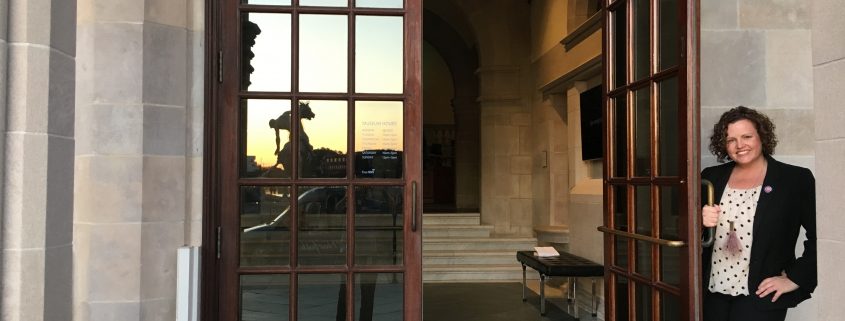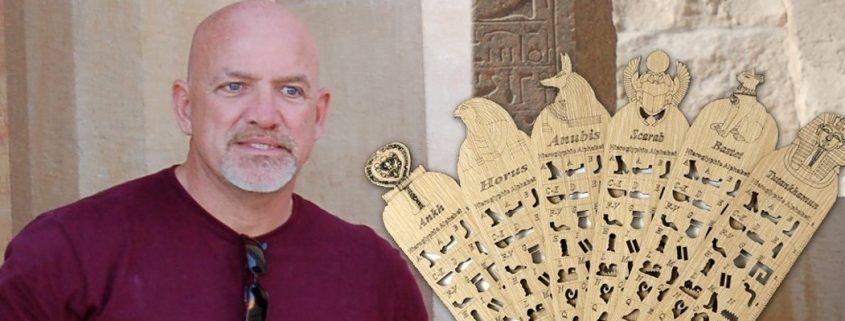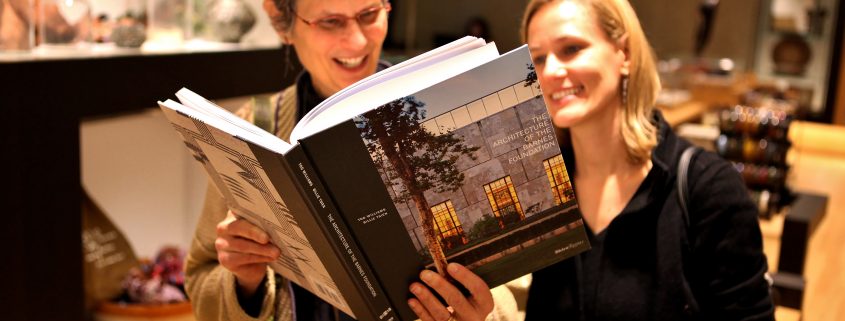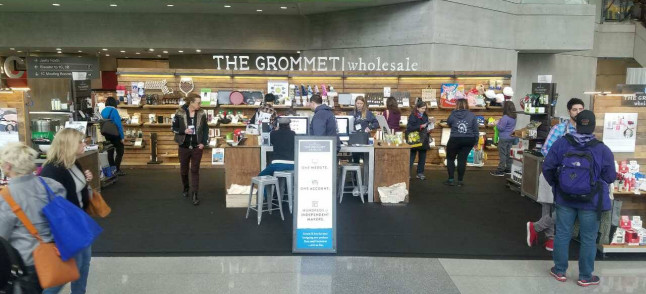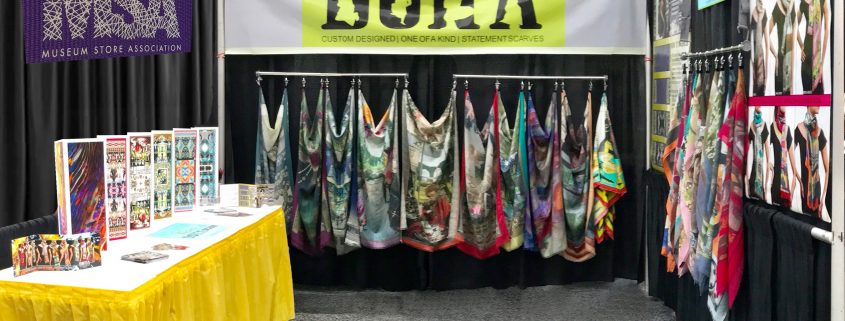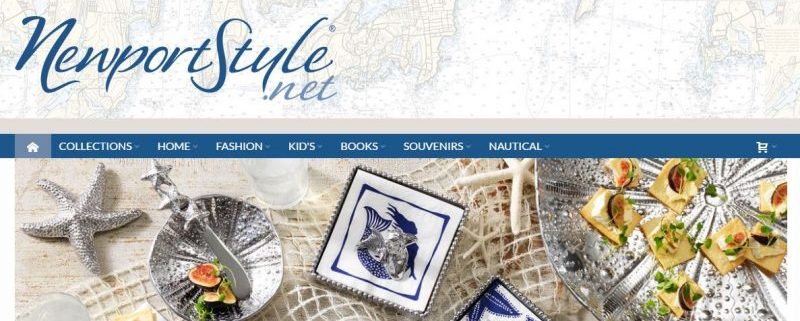October 23, 2017
Name: Donald Burns
Job Title: Director of Sales, Discoveries and Museum Reproductions
Business Name: Discoveries Egyptian Imports and Museum Reproductions
Location: Longmont, Colorado
Where did you grow up?
I grew up in Philadelphia, Pennsylvania and moved to San Diego, California about 12 years ago. I now reside in Napa.
What does your company do? How long has your company been in existence?
I consider myself to be so incredibly lucky to work for two different companies that have each been in existence for approximately thirty years. Discoveries Egyptian Imports is a company that imports high quality products from Egypt: glassware, figurines, children’s educational products and much, much more. All of the products and their packaging are authentic and made in Cairo or Luxor. Museum Reproductions is a jewelry company that reproduces jewelry under license from museum collections throughout the world.
What is your role within your company? Have you changed positions within the company? Worked for another company?
I have done sales and product development for Discoveries for almost 15 years. I started out as a sales representative but then both my role and the company morphed into what it has become today. I went to Egypt and was able to learn more about the products we were developing. At the same time, I visited more museums and learned what products, especially custom ones, that buyers were searching for and so my role and the company evolved tremendously.
As many buyers know, Museum Reproductions was originally founded by Lars Messler who recently passed away. Lars and the owner of Discoveries, Steve Collins, were great friends for many years and when Lars passed it seemed like a great partnership for Steve to assume the role of leadership at Museum Reproductions. Working with Jessica Audet, she and I can now continue to expand the role of Museum Reproductions by collaborating, not just with American museums, but with collections around the world. It’s so awesome that I get to work with such talented people in all these different museums and their incredible collections. I love what I do!
Describe the life journey that brought you to this career (i.e. tell our readers about your interesting life so far…) what drove you to this?
I’m so thankful to my parents for how they raised me! As an only child, they were determined to expose me to all of the cultural institutions in and around the Philadelphia area. It instilled in me a life-long wish to be close to the art, the history, and culture of all of these great places. Additionally, I have to thank Steve Collins, the owner of Discoveries. He is one of the kindest people I know and he really values taking care of his customers. We work very well together and a lot of our clients feel like family.
Tell us about the first sale you ever made to a museum or non-profit institution… what was it? Who did you sell it to?
I started out in picture framing and the very first customer I had was Judy Luther at the National Gallery of Art in Washington, D.C. Judy taught me so much about museums and how to work with a collection. She knew museum retail was special and different from regular retail and how to translate an artifact or a painting into a great product.
Did you feel like a partner in that process? Are you still?
The framing industry has changed so much but, yes, I still do framing with NGA. Translating art into merchandise is our main goal with Museum Reproductions. Lately, we have been working with the Barnes to produce a Renoir bangle and have finished a beautiful line of Cherry Blossom jewelry with the Huntington Library and Gardens — just to name a few projects. Last year, Discoveries won the MSA Education Product of the Year for our Hieroglyphic Stencil rulers. We are also working with The Royal British Columbia museum on their latest Egyptian exhibit to fulfill their request for custom products.
What is unique about your product or production technique or design or other aspect? What would the MSA Membership really want to know about you (this is your time to boast and brag so please, wax lyrical)?
I think with both companies, there is real effort to give our museum buyers quality merchandise. e.g. with Museum Reproductions, the jewelry is made with lead-free metals, natural stones, no stones are dyed and everything ships with a detailed provenance card with as much information about the piece as possible.
There is a lot of turmoil currently in the retail world. Can you tell us one exciting trend that you’ve noticed? Are you taking advantage of it?
The use of the internet and social media are streamlining and expanding a lot of our business. We find the bulk of our orders now are made on are website and buyers use our digital catalogues much more frequently.
There is a lot of turmoil currently in the retail world. Can you tell us one thing that keeps you up at night? What steps will you take in light of that?
Amazon is always a concern in the retail world. However, we feel the personal service, our attention to quality and detail and the ability to customize products to a museum’s collection is something extremely important for us to continue to offer.
What are some concrete goals for your next three years working with members of the Museum Store Association? How do you see MSA helping you achieve that?
I believe Shoptalk has always been an awesome tool and it helps us understand what buyers are looking for. In addition, MSA seems to be forging in a great new direction to develop more opportunities for its members including their vendor members. I would like to learn more about Product Pitch which is beginning on Fridays — and Museum Store Sunday is a fantastic way to highlight our industry. Overall, the MSA Board and staff are more open to new ideas and changes that will position our association for the future.
Have you ever attended an MSA Chapter meeting? Tell us about that experience.
I have attended two so far and, unfortunately, some personal things have prevented me from attending some recently. My goal for next year is to attend all of them.
What is the best vacation you’ve ever had?

The best vacation was Italy about three years ago.…we went to Florence, Venice and Pisa. It was a trip where everything went perfectly-hotels were great and the food was awesome..! I love to travel and really like to plan a trip ahead of time: to research unique hotels and restaurants and search the map for places that look interesting and then book it all! Venice was especially cool-we did a lot of the typical touristy things but there were definite highlights like the Guggenheim Museum and this remarkable dinner we had by the Rialto Bridge under a sky full of stars. We also went to Murano and in one glass gallery which was particularly beautiful, the owner was so welcoming. He told us all about his family, the history of his studio and their glass blowing. It was really memorable!
Do you have a hobby? Collection? Unusual talent?
I love photography and have been collecting Russell Wright dinnerware for years. It was designed in the 30’s and 40’s. I have a very unusual talent but it’s a secret!
It’s been so much fun doing this interview…Again, I love what I do and I’m so grateful to work with such great people around the industry. Thank you for the opportunity to tell you about myself.
Donald Burns has been a member of MSA for many years, and in 2016 he became MSA’s very first Sales Representative Member. Discoveries Egyptian Imports was the winner of the 2017 MSA Buyer’s Choice Award for Education and Games for their Wooden Stencil Ruler.

